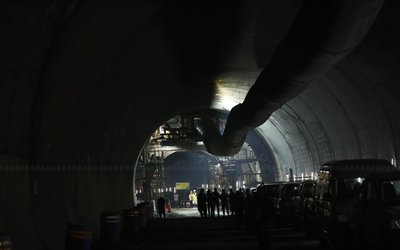While visiting Kathmandu in mid-March, the British minister of state for international development, Alan Duncan, announced that his government was going to almost double its aid to Nepal over the next
four years.
At a time when Britain is implementing harsh measures back home to reduce its budget deficit by making tens of thousands of public sector workers redundant, it allocated £331 million for Nepal for the period
2011-15.
“Our assistance aims to support the peace process, help strengthen governance, improve security and access to justice at the same time helping poor and excluded people benefit from economic growth in Nepal,” declared minister Duncan.
Other objectives for the British assistance included helping deliver better health and education services, help Nepal adapt to climate change, reduce risk from disasters, including earthquake and improve the lives of women and girls, the Department for International Development (DFID) said.
According to the DFID, the plan will create 230,000 jobs, reduce climate vulnerability of three million poor people, lift 570,000 people out of poverty through the forestry programme alone, avert 108,200 unintended pregnancies and provide safe latrines for 110,000 people.
“Nepal is a priority country for UK development assistance. By 2014/15, we will have increased our aid to Nepal by 91%,” said Duncan adding, “Our increased commitment to Nepal means increased acountability to our tax payers. So we want every single penny of the aid budget to make a difference and we will scrutinize how it is spent. Value for money and accountability are our new mantra of how we operate and what we require of our partners.”
A least developed country emerging out of the decade-old conflict, Nepal has remained one of the priority countries for the British development assistance. The largest bilateral donor to Nepal, British assistance over the last five decades spanned in the areas including road construction, education, health, management of natural resources and poverty alleviation.
But getting value for money has been a tough challenge for international donors including UK. A study commissioned by the DFID to assess the impact of its aid in Nepal, reported in 2007 that “a return to the status quo ante of 2000, i.e. working mainly through Government structures, is likely to prove inappropriate in the current context.
DFID’s programme is and should remain large enough to allow both the building up and reform of Government systems, while continuing support to non-government actors (in both remote rural areas and with the growing urban poor).”
“ In Nepal, care should be taken to avoid an over-enthusiastic alignment agenda in a context where legitimate power structures are missing, coalitions are unstable and systems of patronage and weak governance are still in place,” the evaluation report said.
Critics say foreign aid has often entrenched corruption and given rise to a ‘new class of noveau riche’ in poor and developing countries including Nepal. They also call for a need to have a fresh new look to evaluate the overall contribution of aid in national development and ownership of the development program itself.
“In Nepal, there is little doubt that some programmes funded by external agencies have resulted in significant infrastructural development (in eg. transport, communications, health and education), and made contributions elsewhere. But the major consequences is to create a growing reliance and dependency on foreign ‘aid’—which has far reaching negative implications, not only for the balance of payments and national accounts, but also for national self-reliance and for the capacity to devise and implement a coherent, progressive development strategy,” said Prof. David Seddon, a British economist.
Prof. Seddon, who co-edited the much-talked about book “Nepal in Crisis: Growth and Stagnation at the Periphery” in the eighties, insists that the government of Nepal should carefully re-think and re-negotiate its relationship with the foreign ‘aid’ agencies, to decrease its reliance on ‘aid’, both as a source of funding and, equally importantly, as a source of ideas about what constitutes development, and to increase its own capacity to devise an appropriate strategy and appropriate policies for the broad-based development of Nepal, including the capacity of the Nepalese people to determine the direction and nature of that development.
At a time when the political economy of Nepal seems to be increasingly directed from beyond its borders, he pursuit of a free and independent policy in terms of ‘foreign aid’, however, looks remote.
- TANAHU HYDROPOWER PROEJCT: A Significant Achievement
- Apr 15, 2024
- AMBASSADOR HANAN GODAR: Sharing Pain With A Nepali Family
- Mar 30, 2024
- VISIT OF KfW AND EIB TO NEPAL : Mission Matters
- Mar 25, 2024
- NEPAL BRITAIN SOCIETY: Pratima Pande's Leadership
- Mar 24, 2024
- NEPAL ARMY DAY: Time To Recall Glory
- Mar 15, 2024
















